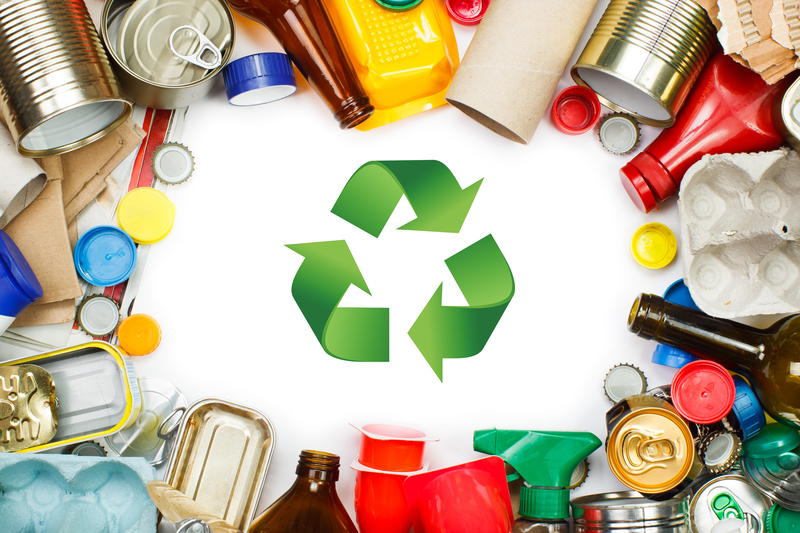Recycling Pots and Pans to Help Reduce Kitchen Waste
Kitchen waste is a significant contributor to landfill space and environmental pollution. Among overlooked household items, old pots and pans stand out as common culprits. Recycling pots and pans to help reduce kitchen waste is a practical, responsible way to embrace sustainability. Let's explore how to recycle cookware, why it matters, and ways you can turn your old kitchen wares into greener solutions.
Why Recycling Pots and Pans Matters
When most people think of kitchen waste, they imagine food scraps, packaging, or single-use plastics. However, out-of-use cookware--including stainless steel pans, aluminum pots, non-stick frying pans, and ceramic baking dishes--make up a sizable chunk of refuse once they are damaged or worn out.
- Large Size and Longevity: Unlike packaging, pots and pans are bulky and often sit in landfills for decades.
- Metal Waste: Most cookware contains recyclable metals that can be given new life, but without proper recycling, these resources are wasted.
- Toxicity: Some cookware coatings--such as old nonstick surfaces--can release harmful chemicals if incinerated or left to degrade.
- Resource Savings: Recycling metal cookware can save up to 95% of the energy needed to create new metal items.

How to Recycle Old Pots and Pans
Recycling old kitchen cookware isn't always as simple as placing it in your curbside recycling bin. Different materials call for varying methods. Here's a comprehensive guide to help you recycle pots and pans responsibly:
1. Check for Donation or Repurposing Opportunities
- Usable cookware: If your old pots and pans are still functional, consider donating them to charity shops, local shelters, or second-hand stores.
- Community kitchens: Non-profits often need spare cookware. Check with nearby food banks or community kitchens.
- Creative reuse: Old pots can serve as plant containers, storage caddies, or creative craft projects.
2. Identify the Material
Knowing the material is essential for proper recycling:
- Stainless Steel: Highly recyclable and accepted by virtually all scrap metal recyclers.
- Aluminum: Common in lightweight cookware. Look for recycling centers that process aluminum specifically.
- Cast Iron: Durable and easily recyclable--but reuse or restoration is often preferred.
- Copper: Valuable for scrap; remove other materials (like plastic handles) first.
- Non-Stick & Ceramic: More complex due to coatings. Contact your local recycling authority for guidance.
3. Remove Non-Metal Parts
Recycling centers prefer cookware that is as close to pure metal as possible. Remove the following before recycling:
- Plastic, rubber, or wooden handles
- Lids with glass or plastic components
- Non-metal accessories or hardware
Tip: Use a screwdriver or pliers to detach parts. Some centers may accept multi-material cookware, but double-check first.
4. Contact Your Local Scrap Metal Yard
Scrap metal dealers often accept old pots and pans for recycling. Most towns have at least one scrap yard or recycling center. Some even pay for certain metals.
- Check for acceptance policies, as some centers restrict non-stick or heavily rusted cookware.
- Group similar metals together for easier processing.
- Call ahead if you're recycling a large volume or specialty materials.
5. Manufacturer Take-Back Programs
Some cookware companies have introduced take-back recycling programs for their products. For example:
- TerraCycle: Partners with select brands to accept old cookware.
- Calphalon: Offers a mail-back recycling service for pots and pans.
- Le Creuset: Occasionally runs exchange or recycling initiatives at select retailers.
Check your cookware's brand for similar programs and drop-off locations.
Sustainable Disposal Alternatives to Pot and Pan Recycling
Repurpose and Upcycle Pots and Pans
If direct recycling isn't an option due to coatings, unknown metals, or lack of local facilities, upcycling old cookware provides creative, sustainable alternatives:
- Planters: Tear-resistant and rust-resistant pots make excellent garden containers.
- Home Decor: Turn worn-out pans into clocks, wall hangings, or lamp bases.
- Craft Projects: Use pans as bases for mosaics, bird baths, or organizational trays.
- Camping Gear: Cast iron or stainless pans can become outdoor cookware for camping trips.
Donation: Extending Cookware's Lifespan
- Community centers and soup kitchens often accept gently used cookware, regardless of its age.
- Schools and art programs can use them for projects or educational activities.
- Check local Buy Nothing Groups and Freecycle for interested parties in your community.
Common Challenges in Recycling Kitchen Cookware
Recycling kitchen equipment isn't without its hurdles. By understanding potential pitfalls, you can maximize your impact:
- Mixed Materials: Many pans come with rubber, plastic, or glass parts difficult to recycle with metals.
- Non-Stick Coatings: Teflon or ceramic coatings can be problematic, as not all recycling centers accept them.
- Unknown Alloys: Pans made with unknown or proprietary alloys may be rejected by recyclers.
- Transport: Bulky, heavy pans can be difficult to move, especially in bulk.
- Lack of Local Options: Some rural areas lack adequate recycling facilities for pots and pans.
The Environmental Benefits of Recycling Metal Cookware
Choosing to recycle old pots and pans instead of discarding them delivers multiple environmental advantages:
- Reduces Landfill Waste: Cookware can take decades or centuries to decompose. Recycling keeps it from clogging landfills.
- Saves Resources: Metal recycling conserves valuable minerals and decreases the need for new mining.
- Energy Efficiency: Recycling metal cookware consumes a fraction of the energy required to produce new metals from ore.
- Lower Pollution: Reduced need for new manufacturing translates into less air and water pollution.
- Wildlife Protection: Proper disposal and recycling helps prevent hazardous waste from entering ecosystems.
Tips for Choosing Sustainable Cookware
Being proactive in your kitchen purchases can help minimize future kitchen waste. Here's how to make greener choices for your cookware:
- Opt for Recyclable Materials: Stainless steel, cast iron, and copper pots are among the most recyclable.
- Avoid Non-Stick Where Possible: Most non-stick pans (PTFE, Teflon) have shorter lifespans and are tricky to recycle.
- Buy Durable Brands: Invest in high-quality pans that can be repaired, rather than replaced.
- Choose Modular or Replaceable Parts: Lids, handles, and knobs that can be switched extend pan life.
- Support Closed-Loop Manufacturers: Brands that take back old products for recycling or refurbishing are ideal.

Frequently Asked Questions About Recycling Kitchen Pots and Pans
Can I Put Pots and Pans in My Curbside Recycling Bin?
Most municipal recycling programs do not accept cookware in curbside bins due to their weight, size, and mixed material components. Instead, use designated scrap metal drop-off points or specialty recycling services.
What Should I Do With Non-Stick Pans?
Since non-stick coatings (like Teflon) complicate recycling, check whether your scrap dealer accepts them. If not, reach out to the manufacturer or use donation/repurposing if the pan's surface is still usable.
Are Lids and Handles Recyclable?
Metal lids are typically recyclable, but plastic or glass accessories may not be. Separate all parts and sort into respective recycling streams for best results.
What If There's Food Residue?
Scrub or wipe down pans before recycling. Excessive residue can affect the recycling process and may result in rejection by the yard.
Can Damaged or Severely Rusted Pots Be Recycled?
Yes. Scrap metal recyclers accept rusted or dinged pans; however, clean them as much as possible and separate from pristine metals.
Conclusion: Greener Kitchens Begin With Responsible Cookware Disposal
Recycling your pots and pans is a small but significant step in shrinking your environmental footprint and contributing to a more sustainable kitchen. By understanding recycling options, repurposing creatively, and making informed cookware choices, you can help reduce kitchen waste and foster a healthier planet.
- Donate, recycle, or upcycle rather than discard.
- Choose eco-friendly cookware for future purchases.
- Advocate for local recycling infrastructure and programs.
Embracing greener habits, starting with cookware, creates ripples of positive change throughout your home and community. Make every pot and pan count in the journey toward a zero-waste kitchen!